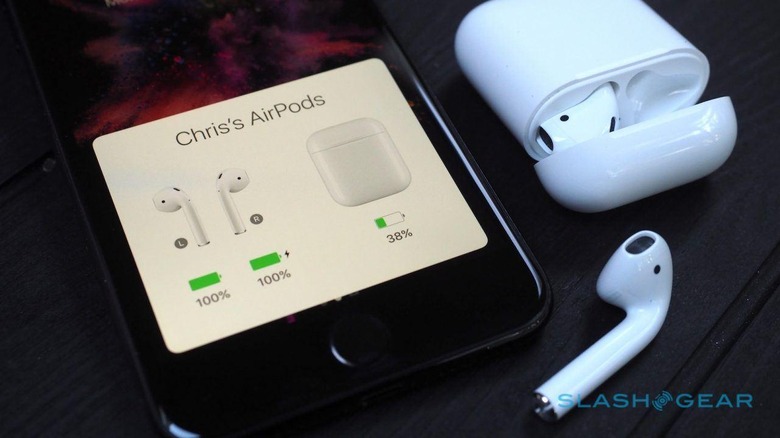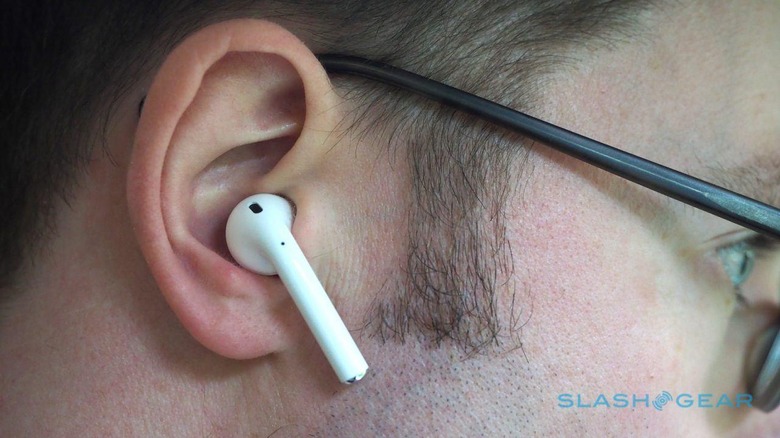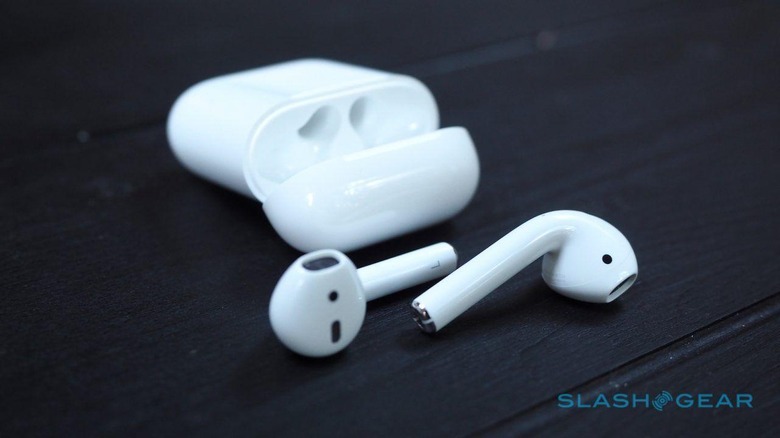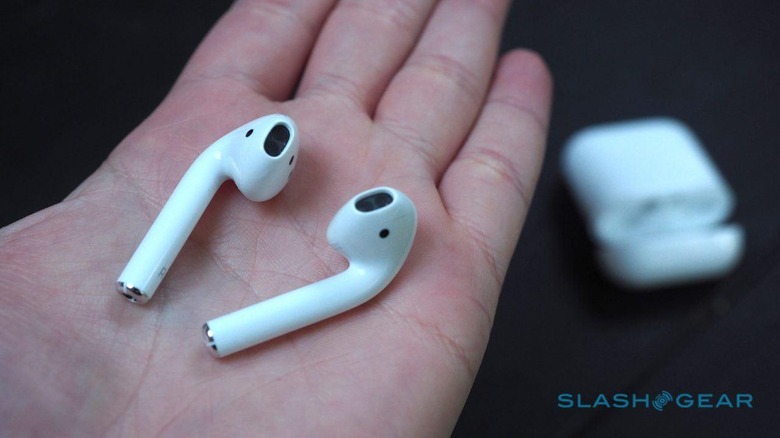4 Ways Apple Could Make AirPods The Best Wireless Earbuds
Apple's AirPods are a wireless tour de force, streamlining the Bluetooth process in a way that no other accessory has done before, but there are still rough edges in everyday use. As I found in my full AirPods review, although the cable-free earbuds get the fundamentals right, you should still expect some frustrations along the way. Luckily, there are a few easy things Apple could do to fix that: read on for my big AirPods complaints, and how they could be addressed.
Find My AirPods
Unlike Apple's wired EarPods, which delight in toppling out of my ears within minutes of my putting them in, the AirPods have proved fairly capable at staying in place. I put that down to the slightly changed shape or the earbuds themselves, and the absence of a cable dragging them down. All the same, they're tiny and present a real risk of loss.
Apple will sell you a replacement for $69 apiece, but what would really be nice is a way to avoid losing them in the first place. Some sort of "You're leaving without your AirPods!" alert if you walk away and leave them on a table is one example, much like Tile and other locators ping you if you're parted from your keys. However, Apple could go one step further.

There's no GPS, so the traditional "Find My iPhone" feature couldn't work for the AirPods as-is. However, Bluetooth positioning can be surprisingly accurate these days, particularly if you factor in pinging the location off other Bluetooth-enabled users. That's how TrackR's crowd GPS network operates, the dongles automatically pinging in their location whenever another user's device is nearby.
Since Apple has a whole lot more iPhone owners in the wild, you could be pretty confident of not going too far without the AirPods being within range of one.
More tap-controls
Each AirPod is packed with sensors: that way, the earbud knows if you put it into your ear or take it out, or if you're double-tapping it to trigger Siri. Unfortunately, right now that's the only tap-based control you get. Sure, you can switch it in the AirPods settings on your iPhone to toggle play/pause instead, but then you lose everything else that Siri does.

What would be useful is a system whereby further tap-commands could be set, preferably with your own sequence of taps. An obvious one would be controlling volume, but if you regularly make calls to the same contacts, you could program that in as a shortcut too. Since the AirPods know whether you're wearing one or both, the same taps could even do different things depending on if you have a single earbud in or two.
Yes, it could get confusing, but that's why making the whole thing user-customizable is vital. Nobody needs a dozen different tap-commands all with slightly different triggers: you'd end up looking like you were sending Morse code on the side of your face. Still, one or two essentials (which will likely differ for every person) would be welcome for when asking by voice is intrusive, inefficient, or just plain impossible.
Free Siri from the tyranny of the internet
If Apple is really, really committed to making Siri your guide for navigating everything including the simplest of AirPods controls, it's time the digital assistant went offline. Currently, even the easiest of instructions – like "skip track" or "lower volume" – have to be sent off to the cloud for processing, before Siri can do anything in response. That presents two big issues.
First, there's the offline problem. If you're in Airplane Mode or just don't have a data connection, Siri can't connect to the cloud. Without that, you can't control anything from the AirPods themselves (bar physically taking one out of your ear to force your music to pause): instead, you need to pull your iPhone out of your pocket.

Even if you're still connected to the delicious, milky teat of the internet, relying on cloud processing is hardly efficient. Say you want to lower the volume: first, you double-tap an AirPod, wait for the chime to confirm Siri is listening, ask "lower volume," wait for that instruction to be shuttled off into the ether, get processed, and then finally have the volume decreased, before your music resumes. Suddenly the dedicated volume buttons on most Bluetooth headsets stop feeling like control overload and start looking fairly sensible.
Local Siri functionality could address both of these problems. No, it wouldn't be able to do everything the virtual assistant currently can, but the technology for basic speech recognition done on a phone rather than in the cloud is more than sufficient today for handling play/pause, volume, track navigation, and other fundamentals. It should be faster, too.
Make Siri rely less on the screen and more on voice
We're still some way off from the movie Her and the idea of a virtual personal assistant whispering useful things in your ear. Siri, though, does have a few talents she can discreetly muster, though as it stands she prefers to point your attention away from your AirPods and down to your iPhone. That seems a waste.

Apple could do worse than look to Amazon's Alexa. Since the Echo doesn't have a screen of its own, Amazon avoids directing users to the Alexa app on their phone as much as it can. Instead, the majority of queries are responded to by voice.
In an ideal world, you'd be able to use AirPods to get spoken pedestrian navigation directions from Apple Maps, and have text messages read out to you (and respond to them with text-to-speech) as they arrive. Being able to double-tap an AirPod and request an Uber to your current location is another obvious possibility. Really, though, asking you to take your iPhone out to get an answer should be Siri and the AirPods last resort.
Wrap-Up
Assuming you can find them in stores or online, Apple's AirPods demonstrate just how simple connecting and managing wireless devices with an iPhone should be. The basics of audio playback are dealt with well, too, and I can't fault how conveniently they store and charge in their flip-top companion case. It's a great start, but Apple can't afford to slow down.
NOW READ: Apple AirPods Review
The good news is that it wouldn't take much to polish away the AirPods' rough edges. Most of it comes down to how Siri behaves and interacts, and for the most part it could all be addressed with software updates, something Apple has a decent track record in pushing out. Today, AirPods aren't a must-have iPhone accessory, but a few key changes could make all the difference.
